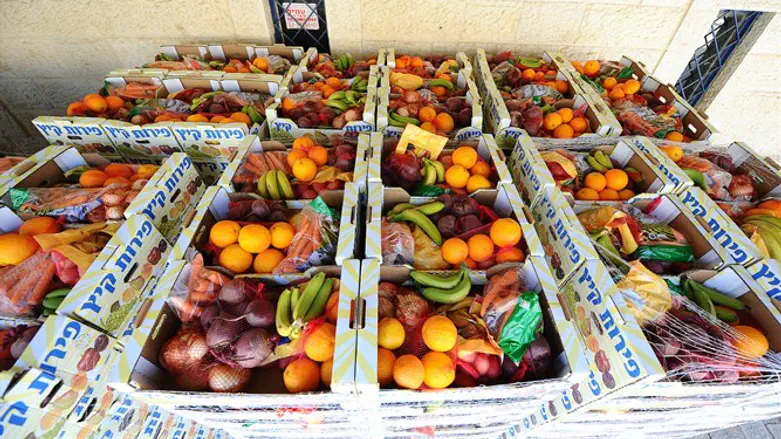
Colel Chabad, Israel’s longest running social services organization, helping Israel’s needy and elderly since 1788, has continued to increase its operations as the COVID-19 pandemic has moved through Israel with the economic effects drastically impacting many of their beneficiaries and pushing many others below the poverty line.
“As Director of Colel Chabad for more than 35 years, I have never seen an operation of this scale, constantly and immediately adjusting to the new health and safety regulations and government objectives while also witnessing so many new people expressing the need for support,” said Rabbi Sholom Duchman.
“One of the main challenges of COVID-19 is that it targets the most vulnerable of our society,” continued Rabbi Duchman. “The elderly, those with prior medical conditions, and the poor, who often suffer from more illnesses due to their diet and challenging lifestyle, are the hardest hit by this terrible virus. This is the time to step up and do whatever it takes to help those who need it the most.”
The Ministry of Welfare understood that this next stage of helping those in need involved deliveries of essential foods to the door of those most vulnerable, which are often up several flights of stairs, and the processing and distribution of “food cards” to be used at groceries nationally. They quickly realized that the Colel Chabad infrastructure from the National Food Security program was already in place and could be scaled up. This enabled them to add the sourcing, purchasing, packaging and delivery for an additional 112,500 elderly sheltering in place, alongside distribution of over 100,000 additional food cards.
Contracts of over 100 million shekels of support were signed, and the projects began immediately.
“We went from delivering food and staples to 3,000 families to 50,000 families in a matter of days,” said Rabbi Duchman. “We hired close to 350 additional workers, scaled up sourcing, purchasing, packing, and delivering to be able to meet the needs of those who truly can’t help themselves. This partnership with the government, especially with the constant support of Dr. Avigdor Kaplan, Director-General of the Welfare Ministry, and cooperation with other non-profit organizations to reach all corners and segments of the population, has been unprecedented.”
While the home-delivered food and produce boxes are most commonly distributed to the elderly, food cards are being distributed not only to families, but also to young adults with troubled backgrounds, who often lack support from their families. With these cards, individuals can shop for their own food at over 600 different store chains located throughout the country.
Another group often overlooked, the hard-working foreign workers community in Israel, is being supported with food cards as well, through a partnership with the Joint Distribution Committee.
